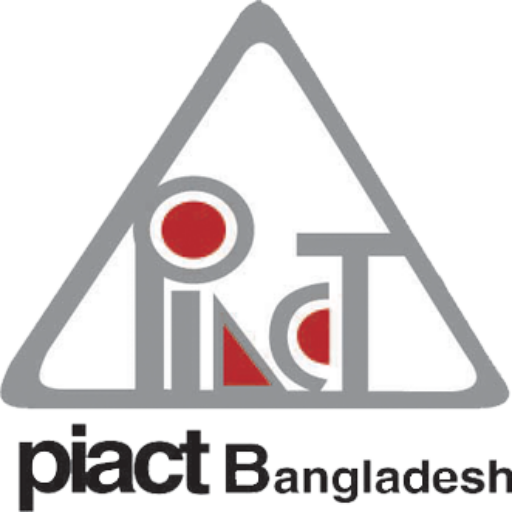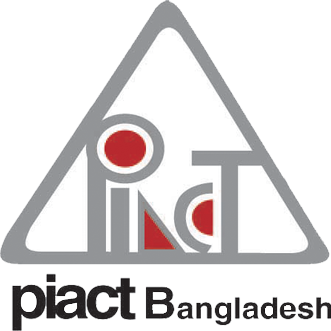PIACT Bangladesh has proven record of designing, developing and delivering large-scale training programs in wide ranges of areas. It has long experiences of designing and developing capacity building training including TNA, module development and conducting TOT, Master Trainers Training and cascade training for different GOB and NGO staff at national and local level. The training includes but not limited to maternal and child health, nutrition, WASH, skill based education, drug prevention, strategic communication, IPC/SBCC, HIV and AIDS prevention, Family Planning.
PIACT Bangladesh has a training section equipped with trained human resources, equipment and materials. It has a large pool of master trainers who provided training on poverty, population, health, FP, education and other social development issues at the national and sub-national levels such as district, upazila, union and wards levels . PIACT Bangladesh developed training module, materials and organized and conducted training courses at the national, divisional, district and upazila levels on health, HIV/AIDS, FP, management information system (MIS), non-formal education, SBCand other social development issues towards poverty reduction.
Between 2004 and 2007, with the financial support from Save the Children/ GFATM/ MOHFW, PIACT Bangladesh developed curriculum contents for the secondary and higher secondary students on HIV/AIDS through bottom up consultation process with the students, teachers, educationist and other related stakeholders and integrated the curriculum contents into the mainstream curriculum of the National Curriculum Textbook Board (NCTB) of the Ministry of Education. Afterwards, between 2007 and 2014, with the financial support from the same donors, it had implemented countrywide training program by providing training to the teachers, and orient management committee members of secondary and higher secondary education institutes (including Madrasha) covering 64 districts and 520 upazilas and thanas. Under the project, PIACT developed 2,442 Master Trainers (including faculty members of teachers training institutes) and 62,352 Core Trainers, and provided training to 304,920 teachers, and oriented 323,141 management committee members of the education institutions including Madrashas to develop the capacity of the teachers and create an enabling environment to teach the students on HIV/AIDS issues in the classroom effectively.
During 2010 and 2012, PIACT Bangladesh implemented “Education Awareness and Community Mobilization (EACM)” project under Secondary Education Quality and Access Enhancement Project (SEQAEP) of Directorate of Secondary and Higher Secondary Education under the Ministry of Education in 122 remote upazilas of 61 districts of Bangladesh, which included training of PTA Member-Secretaries at 122 upazila headquarters and School/Madrasha Management Committee Members at 3,981 education institutions. SBCC was a integral part of those trainings.
With support from UNFPA ,during 1993 to 1997 ,PIACT Bangladesh designed and developed Computerized Management Information System (CMIS) at the district level for FP-MCH systems of the Directorate of Family Planning and conducted computer training courses for the personnel of the Directorate of Family Planning and the MOHFW . Around 500 officials of different categories such as Divisional Directors, Deputy Directors and other officials were given 8-week training on computerized MIS using a customized software. Under this program computers were installed at 82 locations throughout the country (64 districts, 5 divisions, the Directorate of FP and the MOHFW). Besides, a Networking System was installed at the MOHFW, which connected 11 computers installed at different points inside the Ministry. This was one of the ever largest computerization projects in the country.
In 1989, PIACT Bangladesh in collaboration with the MIS Unit of the Directorate of FP conducted a training on Management Information Systems (MISs) for 1492 MCH-FP Program Managers. The objective of the training was to build the capacity of MIS in terms of data collection, compilation, analysis and monitoring of MIS systems.
The categories of officials who received this training are as follows:
| Headquarters Managers: | 62 |
| Divisional Directors: | 4 |
| Deputy Directors of Districts: | 64 |
| Assistant Directors (ADs): | 64 |
| Upazila FP Officers (UFPOs): | 467 |
| Assistant FP Officers (AFPOs): | 180 |
| Upazila FP Assistants (UFPAs): | 467 |
| District Statistical Assistants (DSAs): | 64 |
| Assistant Statisticians, MIS Unit: | 40 |
| Multisectoral Program Managers: | 10 |
| NGO Program Managers: | 70 |
| Total: | 1492 |
As per our practice in different training, we use “evaluation sheet” to evaluate the trainees in respect of their understanding about the training. We also use customized tool, pre-and-post test questionnaire as well as course evaluation tools as per requirement.

A view of training session on MIS conducted by PIACT Bangladesh


